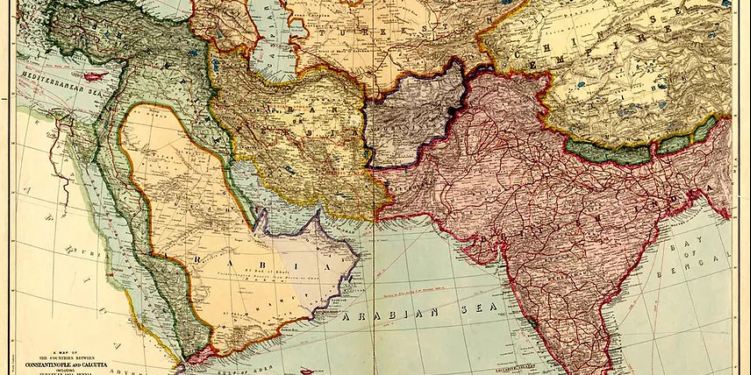A few days ago, Saif Ali Khan, the actor who played the role of a historical character named Udaybhan in ‘Tanhaji: The Unsung Warrior’, said, “I don’t think this is history.” The actor further added, “I don’t think there was a concept of India till the British gave it one.”
The statement by Saif Ali Khan is not a random comment or observation by a persona who spent silver spoon life. Saif is a self-proclaimed history buff and his family played an important role in the Indian history; given the fact that he is descendant of Pataudi family from paternal side and Tagore family from maternal side.
He named his son after the tyrant Taimur, and this shows that he has very strong sense of history. And therefore, when Saif says that there was no concept of India till the British gave one, it is of immense significance.
There is a very strong theme in history, which argues that, the modern Indian nation is a colonial construct, and there was no sense of sacred geography before British came to India.
This theory is of colonial origin. The British people, who wanted to deny India its freedom, very strongly propagated this theory in the intellectual discourse, and through this, the British wanted to end intellectual argument for India’s freedom. The British argued that the colonial construct of British India would fall apart, if the nation is given freedom.
After India got freedom, this intellectual argument was perpetuated by Anglophile academics and many Marxist historians. And this argument still finds space, especially in our English newspapers, and among the Anglophile upper class of the country. The elitist people like Saif Ali Khan, whose ancestors were pet of British and wanted to join Pakistan after British India gained independence, perpetuate this argument for ideological reasons.
However, contrary to what people like Saif Ali Khan argue, India has a sense of sacred geography and has been a civilizational unit for the last 6,000 years at least. In Vishnu Purana, it is mentioned that, the land to the south of Himalayas and North of the ocean is- Bharat.
The Shakti Peetha’s are also within the sacred geography of the country. When Adi Shanakacharya established four Dhams, these four were strategically established in the four corners of the country.
In our Itihasa- Ramayan and Mahabharata- the geography of the events within the area what Savarkar called the ‘sacred land of Hindus’: that is, the area North of the Sea, South of Himalayas, east of Indus, and west of Himalayan foothills. This scared geography was repeatedly united by many kingdoms like Mauryas and Guptas.
Unlike the Western nations, whose concept of nation-states comes from Westphalian Sovereignty, majority of the countries in Asia like- India, China, Japan, Iran, are what is called a ‘civilizational nation state’. For these countries, the geography covered under the sacred civilization is the territory they associate with.
The Indian civilization, or more specifically the Hindu civilization, has always associated itself with the sacred geography of Indian subcontinent. Therefore, although the boundaries of modern Indian nation state is a colonial construct, there was always a sense of unity, a sense of belonging to this sacred geography. To argue that there was no concept of India before the British gave one, is not only foolish but utterly dangerous too. We are perpetuating the colonial argument, with added flavors of Nehruvian and Marxist biases, to deny the existence of India.
